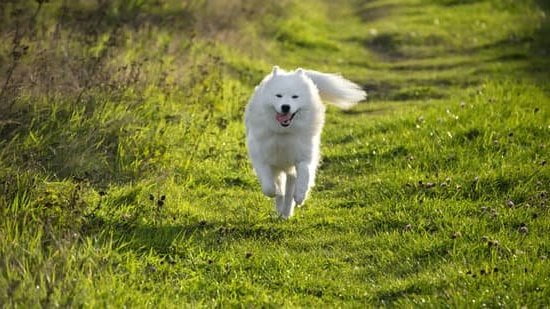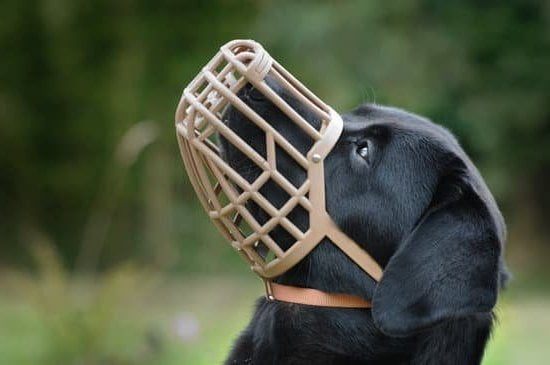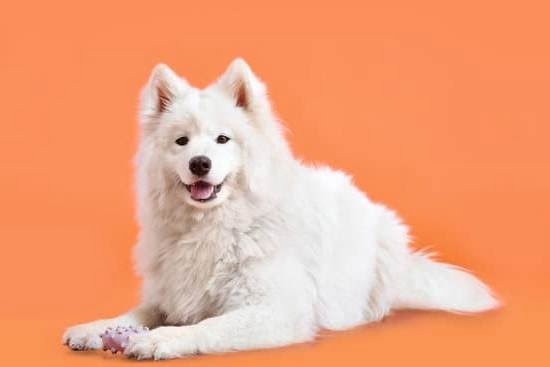House training is a vital aspect of owning a dog, as it helps create a clean and comfortable living environment for both the pet and the owner. However, even dogs that have been successfully house trained can sometimes have accidents, leaving their owners wondering what went wrong. In this article, we will explore the common reasons why house trained dogs may still have accidents and provide insights into how to address these issues.
Understanding house training is essential to effectively tackle this problem. House training refers to the process of teaching a dog where and when they should eliminate waste. It involves establishing a routine for bathroom breaks, positive reinforcement techniques, and effective communication between the owner and the pet. While some may assume that once a dog has been house trained, accidents should no longer occur, in reality, there are various factors that can lead to lapses in training.
One common misconception about house trained dogs is that accidents only happen if they haven’t been properly trained or if they are intentionally misbehaving. However, there are several other factors that can contribute to accidents in otherwise well-trained dogs.
These may include physical health issues such as urinary tract infections or digestive problems, psychological factors like stress or anxiety, or environmental changes that disrupt their routine. By understanding these potential causes, dog owners can better address the issue and come up with appropriate solutions.
In the following sections of this article, we will delve deeper into these reasons for accidents in house trained dogs. We will discuss both medical conditions and behavioral issues that could be at play, providing insights on detection methods and possible remedies.
Additionally, we will address common mistakes dog owners make during house training and offer guidance on how to rectify them and establish consistency in their dog’s routine. Lastly, we will provide tips for maintaining proper house training habits throughout different stages of a dog’s life.
House training accidents can be distressing for both you as an owner and your beloved pet. Nevertheless, with the right information and strategies, these accidents can be resolved. By understanding the intricacies of house training and the factors that may cause accidents in even well-trained dogs, you will be equipped to troubleshoot this issue and maintain a clean and harmonious living environment for both you and your furry friend.
Common Reasons for Accidents in House Trained Dogs
House training a dog is an essential part of responsible pet ownership. It not only promotes cleanliness in the household but also improves the overall well-being and happiness of your furry friend. However, even dogs that have been successfully house trained may occasionally have accidents. In this section, we will explore the common reasons why house trained dogs may have accidents, including physical health issues, psychological factors, and environmental influences.
One potential cause of accidents in house trained dogs is underlying physical health issues. Medical conditions such as urinary tract infections, bladder stones, or gastrointestinal issues can lead to an increase in accidents.
It’s important to be aware of any changes in your dog’s behavior, such as increased frequency of urination or signs of discomfort when eliminating, as these could indicate an underlying health problem. Consulting with a veterinarian can help determine if there are any medical issues contributing to your dog’s accidents and provide appropriate treatment.
Psychological factors can also play a role in a house trained dog having accidents. Just like humans, dogs can experience stress, anxiety, and fear, which may affect their bathroom habits. Stressful situations such as changes in the household or routine can trigger accidents.
Additionally, separation anxiety can lead to indoor elimination due to the distress caused by being left alone. By identifying and addressing these psychological factors through behavior modification techniques or professional help if needed, you can assist your dog in overcoming their bathroom accidents.
Furthermore, environmental influences should not be overlooked when considering reasons for accidents in house trained dogs. Changes in the environment that disrupt a dog’s established routine or location for eliminating can cause confusion and lead to accidents.
Similarly, new scents or unfamiliar surfaces may deter a previously house trained dog from using their regular designated area. Understanding the impact of environmental factors on your dog’s behavior is crucial and adjustments to their surroundings may be necessary to prevent future accidents.
| Reasons for Accidents | Explanation |
|---|---|
| Physical Health Issues | Medical conditions affecting urinary or gastrointestinal systems can contribute to accidents |
| Psychological Factors | Stress, anxiety, fear, and separation anxiety can impact a dog’s bathroom habits |
| Environmental Influences | Changes in routine, location, scents, or surfaces may confuse and lead to accidents |
By understanding these common reasons for accidents in house trained dogs, you can take proactive measures to address them effectively. Seeking veterinary assistance when needed and implementing appropriate behavior modification strategies will help your dog regain their consistency with house training. It is crucial to remember that accidents are not necessarily a sign of failure but rather an opportunity for learning and improvement in your pet’s training journey.
Medical Reasons for House Trained Dogs Having Accidents
When a house trained dog starts having accidents, it can be frustrating and confusing for both the dog owner and the pet. While behavioral issues and training mistakes can certainly contribute to accidents, it’s important to consider potential medical reasons as well. In this section, we will explore common medical conditions that may result in house trained dogs having accidents.
There are several medical conditions that could be responsible for a dog’s sudden change in bathroom habits. One possible cause is urinary tract infections (UTIs). Dogs with UTIs may have difficulty controlling their bladder or may urinate more frequently than usual. Other symptoms of UTIs include blood in urine, straining to urinate, or signs of discomfort while urinating.
Another medical condition to consider is bladder stones or crystals. If your dog has bladder stones or crystals, they may experience pain and urgency in urination, leading to accidents in the house. In some cases, dogs with kidney disease or diabetes may also struggle with controlling their bladder function.
To detect these medical issues, it is essential to observe your dog’s behavior closely and look out for any changes in their bathroom habits or signs of discomfort. If you suspect a medical condition might be causing your dog’s accidents, it is crucial to consult a veterinarian for proper diagnosis and treatment.
Treating medical reasons for accidents typically involves addressing the underlying condition through medication, dietary changes, or other appropriate treatments. It’s important to follow your veterinarian’s advice carefully and monitor your dog’s progress closely during the recovery process.
It’s worth mentioning that some dogs might show no visible signs of illness but still exhibit changes in their elimination habits due to age-related health issues such as cognitive decline or loss of bladder control. It is always best to consult with a veterinarian if you notice any significant changes in an older dog’s potty behavior.
In the next section, we will discuss the behavioral reasons that can contribute to a house trained dog having accidents and provide strategies to address these issues.
Behavioral Reasons for House Trained Dogs Having Accidents
Behavioral issues can sometimes be the cause of accidents in house trained dogs. Dogs may have accidents due to separation anxiety, territorial marking, or dominance-related behaviors. Understanding these behavioral reasons can help dog owners address the issue effectively.
One common behavioral reason for accidents in house trained dogs is separation anxiety. Dogs with separation anxiety experience distress and anxiety when they are left alone. This anxiety can lead to accidents because the dog may feel overwhelmed and unable to control their bladder or bowels. Signs of separation anxiety include excessive barking or howling, destructive behavior when left alone, and attempting to escape from the confined area.
Territorial marking is another behavioral reason for accidents in house trained dogs. When a dog marks territory, they are leaving scent marks as a form of communication, often due to a perceived threat or marking their territory as their own. This behavior can occur even in spayed or neutered dogs.
Male dogs commonly mark by lifting their leg and urinating on vertical surfaces, while female dogs may squat and leave small amounts of urine to mark their territory. To address territorial marking, it is important to thoroughly clean areas where accidents have occurred and provide proper training on appropriate bathroom areas.
Dominance-related behaviors can also contribute to accidents in house trained dogs. Dogs that display dominant behaviors may urinate or defecate inside the house as a way of asserting dominance over their territory.
Some signs of dominance-related behaviors include growling or guarding resources such as food or toys, excessive jumping on people as a display of dominance, and refusing to obey commands from family members. Addressing these behaviors often involves consistent training methods that establish clear boundaries and reinforce obedience.
To address behavioral reasons for accidents in house trained dogs, it is important for dog owners to first identify the root causes behind these behaviors. Once identified, implementing positive reinforcement techniques such as rewards for desired behavior can help modify these behaviors over time.
It is also important to ensure that the dog’s physical and mental needs are properly met through regular exercise, mental stimulation, and a consistent routine. Seeking guidance from a professional dog trainer or behaviorist may be beneficial in addressing these behavioral issues effectively.
House Training Mistakes and Inconsistencies
Common Mistakes Made by Dog Owners
One common reason why a house trained dog may start having accidents is due to mistakes and inconsistencies made by the dog owner during the house training process. It’s important for dog owners to recognize and rectify these mistakes in order to establish a consistent routine for their pets.
One common mistake is not providing enough opportunities for the dog to go outside. Dogs have different bladder capacities depending on their age, size, and breed, so it’s crucial to take them out frequently throughout the day. Another mistake is not properly rewarding or reinforcing good behavior during house training. Positive reinforcement is key to encouraging dogs to associate using the bathroom outside with praise or treats.
Inconsistencies in the training process can also lead to accidents. If a dog owner allows their pet to occasionally relieve themselves indoors, it can confuse the dog and lead to accidents even after they have been initially house trained. It’s important for dog owners to be consistent in their expectations and reinforce good bathroom habits every single time.
Rectifying Mistakes and Establishing Consistency
To rectify these mistakes and establish consistency, it’s essential for dog owners to review their house training techniques and make adjustments as needed. Here are some steps that can help:
- Revise the schedule: Review the frequency of potty breaks and ensure that they align with your dog’s specific needs. Increase the number of outdoor trips if necessary.
- Reinforce positive behavior: Praise your dog profusely when they successfully use the bathroom outside. Consider using treats or a special toy as additional rewards during this process.
- Restrict access: If your dog starts having accidents again, temporarily restrict their access to certain areas of the house where accidents occurred before. Gradually allow more freedom as they consistently demonstrate good bathroom habits.
- Establish a routine: Consistency is key in successful house training. Set a schedule for regular feeding times and bathroom breaks. Take your dog out at the same times every day to prevent accidents.
By addressing these mistakes and establishing a consistent routine, dog owners can help their house trained dogs overcome accidents and reinforce good bathroom habits.
Understanding the common mistakes and inconsistencies made by dog owners during the house training process is crucial in preventing accidents in previously house trained dogs. By taking necessary steps to rectify these mistakes and establish a consistent routine, pet owners can effectively address the issue of accidents and reinforce positive bathroom habits. Remember, patience and consistency are key in maintaining a well-trained dog.
Aging and Accidents
As dogs age, they may experience a variety of health issues that can impact their ability to maintain proper house training. This section will shed light on some of the challenges that senior dogs may face in terms of house training and provide tips and strategies for managing these challenges.
Age-related health issues can contribute to accidents in senior dogs. As dogs get older, they may experience a decline in bladder control, which can lead to accidents in the house. Additionally, cognitive decline can affect a dog’s memory and awareness, making it more difficult for them to remember where they are supposed to go to the bathroom. It is important for dog owners to be aware of these potential challenges and take steps to address them.
One strategy for managing house training challenges in senior dogs is to provide frequent bathroom breaks. Older dogs may not be able to hold their bladder for as long as they used to, so it is important to give them plenty of opportunities to relieve themselves outside. Taking your senior dog out for more frequent walks or potty breaks throughout the day can help prevent accidents indoors.
Another helpful technique is crate training. While older dogs may not need as much crate confinement as puppies, using a crate can still be beneficial for preventing accidents when you are unable to supervise your senior dog. Gradually reintroducing your senior dog to the crate and providing positive reinforcement when they use it appropriately can help reinforce good bathroom habits.
It is also important for dog owners with senior dogs to be patient and understanding. Accidents may happen despite their best efforts, so it’s essential not to punish or scold the dog when accidents occur. Instead, focus on reinforcing good behaviors and providing guidance and consistency during the house training process.
Overall, aging can present unique challenges when it comes to maintaining proper house training in senior dogs. However, with patience, understanding, and appropriate strategies, these challenges can be managed effectively, allowing both the dog and owner peace of mind.
| Senior Dog Training Challenges | Tips and Strategies |
|---|---|
| Decline in bladder control | Provide frequent bathroom breaks and consider using diapers or puppy pads if necessary |
| Cognitive decline affecting memory and awareness | Reinforce good bathroom habits with positive reinforcement training and crate training as needed |
| Patient and understanding approach | Avoid punishment or scolding, focus on reinforcing good behaviors, be consistent in training efforts |
Retraining Techniques for House Trained Dogs
If your house trained dog unexpectedly starts having accidents, it can be frustrating and confusing. However, it’s important to remember that accidents can happen even with dogs who have been successfully potty trained in the past. The good news is that with proper retraining techniques, you can help your dog get back on track with their bathroom habits.
Step-by-Step Retraining Process
To effectively retrain a house trained dog who is having accidents, it’s essential to go back to the basics of potty training. Here is a step-by-step process you can follow:
- Assess the situation: Take note of when and where your dog is having accidents. This will help you identify any patterns or triggers that may be contributing to the behavior.
- Establish a routine: Create a consistent schedule for your dog’s bathroom breaks. Take them outside frequently, especially after meals, naps, playing sessions, or any other activities that may stimulate their urge to urinate or defecate.
- Use positive reinforcement: Reward your dog with treats and praise every time they eliminate in the appropriate spot. Positive reinforcement helps them associate going to the bathroom outside with positive outcomes.
- Monitor closely: Keep a close eye on your dog while indoors so that you can catch any signs of needing to eliminate early on. If you see them sniffing around or circling in search of a spot, immediately take them outside to their designated area.
- Restrict access when unsupervised: If you’re unable to closely monitor your dog at all times, consider using confinement methods such as crate training or baby gates to limit their access to certain areas of the house where accidents often occur.
- Clean up thoroughly: Whenever accidents happen indoors, make sure to clean up the mess thoroughly using an enzyme-based cleaner specifically designed for pet stains and odors. This helps eliminate any lingering scent that may encourage your dog to continue using the same spot.
- Stay patient and consistent: Retraining takes time, so it’s important to remain patient and consistent with your approach. Avoid scolding or punishing your dog for accidents, as this can create fear or anxiety around going to the bathroom.
Recommended Training Methods
When retraining a house trained dog, positive reinforcement methods are highly recommended. These methods involve rewarding desired behaviors rather than punishing mistakes. Some effective training techniques include:
- Clicker training: Using a clicker as a marker for desired behaviors can help reinforce good bathroom habits. Each time your dog eliminates outside, immediately click the clicker and give them a treat.
- Verbal cues: Teach your dog specific verbal cues such as “go potty” or “do your business.” Use these cues consistently every time you take your dog outside to their designated bathroom area.
- Command training: Incorporate command training into the retraining process by teaching your dog commands like “sit” or “stay” before going to the bathroom outside. This helps establish a structured routine and reinforces listening skills.
- Crate training: If necessary, consider reintroducing crate training as part of the retraining process. A crate can provide a safe and secure space for your dog when they cannot be supervised closely, reducing the likelihood of accidents indoors.
Remember, consistency is key when retraining a house trained dog who is having accidents. Stick to the routine and reward desired behaviors consistently until you see improvement in their bathroom habits.
Maintenance and Prevention of Accidents in House Trained Dogs
Maintaining a well-trained dog and preventing accidents requires ongoing effort and consistency. While house training may initially be successful, it is important to continue practicing good habits to ensure that accidents do not occur in the future. In this section, we will discuss the importance of maintenance and prevention in keeping your house trained dog accident-free.
One crucial aspect of maintenance is establishing a regular bathroom schedule for your dog. Just like humans, dogs have a biological need to relieve themselves at specific times throughout the day. Take note of when your dog typically needs to go outside, and ensure they are given regular opportunities to eliminate in an appropriate area. This may include taking them out first thing in the morning, immediately after meals, and before bedtime.
In addition to regular bathroom breaks, proper cleaning techniques are essential in preventing accidents. Dogs have a keen sense of smell, and if an accident occurs indoors, they may be more likely to eliminate in that same spot again. Therefore, it is crucial to thoroughly clean any accidents with enzymatic cleaners specifically designed for pet stain and odor removal. These cleaners help break down the scent molecules that can attract dogs back to the same area.
Reinforcing good habits through positive reinforcement is another important aspect of maintaining a well-trained dog. Whenever your dog eliminates outside or uses their designated indoor potty area, praise them and reward them with treats or verbal praise. This positive association will help solidify their understanding that eliminating in appropriate places is rewarded.
Ultimately, patience and consistency are key in maintaining a well-trained dog who does not have accidents. Understand that setbacks may occur from time to time even with properly trained dogs – perhaps due to changes in routine or other factors – but it is important not to become frustrated or discouraged. By consistently following these maintenance strategies, you can greatly reduce the likelihood of future accidents and maintain a harmonious living environment for both you and your furry friend.
Conclusion
In conclusion, understanding house training is essential for dog owners in order to prevent and address accidents. Throughout this article, we have explored the common reasons why house trained dogs may have accidents, including physical health issues, psychological factors, environmental influences, behavioral problems, human errors during training, and age-related challenges in senior dogs.
It is important to remember that accidents can happen even with a well-trained dog. When faced with a house trained dog having accidents, it is crucial to consider any potential underlying medical conditions that may be causing the behavior. Consulting a veterinarian for proper diagnosis and treatment is imperative.
Behavioral issues can also contribute to accidents in house trained dogs. Separation anxiety, territorial marking, and dominance-related behaviors can all lead to unwanted accidents indoors. By addressing these behavioral concerns through positive reinforcement methods and consistent training techniques, owners can help their dogs develop good bathroom habits.
Furthermore, prevention and maintenance are key components of successfully managing house training. Establishing a consistent routine for bathroom breaks, using proper cleaning techniques when accidents occur, and reinforcing good habits will go a long way in minimizing future incidents.
Remember to be patient and consistent throughout the process of troubleshooting your house trained dog’s accidents. Seek professional help if necessary and know that with time and dedication, you can resolve these issues and maintain a well-trained dog who is accident-free.
Frequently Asked Questions
Is it normal for potty trained dog having accidents?
It is not normal for a potty trained dog to have accidents, but it can happen occasionally due to various factors. One common reason could be a medical issue such as a urinary tract infection or bladder problem, which may cause the dog to lose control over their bladder. In such cases, it’s important to consult with a veterinarian to rule out any underlying health concerns.
Additionally, stress, anxiety, or changes in their environment can also lead to accidents. Dogs are creatures of habit, and disruptions in their routine or environment can sometimes cause regression in their potty training habits.
Why is my potty trained dog suddenly peeing in the house?
When a potty trained dog suddenly starts peeing in the house, there can be multiple reasons behind this behavior change. One possibility is that the dog is experiencing a medical issue like a urinary tract infection or kidney problem that is causing them discomfort or increased urgency to urinate. It’s crucial to make sure your dog receives proper veterinary care if you notice sudden changes in their bathroom habits.
Another reason could be related to changes within the household or routine of the dog. Major life events such as moving houses, getting a new pet, or even changes in the family dynamics can cause dogs to feel stressed or anxious, leading to accidents.
Why is my dog having a pee accident suddenly?
If your dog is having a sudden pee accident even though they were potty trained before, it could indicate various potential issues that need attention. Health problems should not be ruled out initially as some medical conditions like urinary tract infections, bladder stones, or kidney problems might cause dogs to have accidents unexpectedly. These issues require prompt veterinary intervention for diagnosis and treatment.
Apart from health-related causes, environmental factors should also be considered. Changes in schedules/routines might unsettle dogs and disrupt their normal toilet habits, while stressors like loud noises, new pets or people in the house can also lead to accidents in initially potty trained dogs. Therefore, understanding and addressing these triggers can help prevent further incidents and maintain a potty trained dog’s consistency.

Welcome to the blog! I am a professional dog trainer and have been working with dogs for many years. In this blog, I will be discussing various topics related to dog training, including tips, tricks, and advice. I hope you find this information helpful and informative. Thanks for reading!





